Some dogs dream of frolicking on a big farm somewhere, with plenty of room to roam, things to sniff, and varmints to chase.
But some will also adapt to – perhaps even enjoy – living in dense urban areas. After all, no other setting offers such a bouquet of aromas to sniff, with so many opportunities to snap up a stray slice of pizza on the sidewalk.
City life certainly imposes some unique challenges for canines and their owners. But if you pick the right breed, you’ll find that your four-footer can fit right in with all the hustle and bustle.
We’ll point out some of the best dogs for city living below and talk about the characteristics most of these breeds have in common.

Characteristics That Make for a Good City Dog
Let’s get a disclaimer out of the way first: All dogs are individuals, with different tolerances, personalities, and desires. There are no absolutes, and you may very well find a husky or Great Pyrenees who loves living in a high rise.
But don’t hold your breath.
Some breeds will rarely be happy living in Manhattan or downtown Chicago (even if Chicago has a ton of great dog parks). But other breeds can thrive in big cities.
Breeds who do well with city life usually exhibit a few common characteristics, including the following:
Small Body Size
While some medium to large dogs can adjust well to city life (we’ll share a few below), small dogs are generally better-suited for an urban lifestyle.
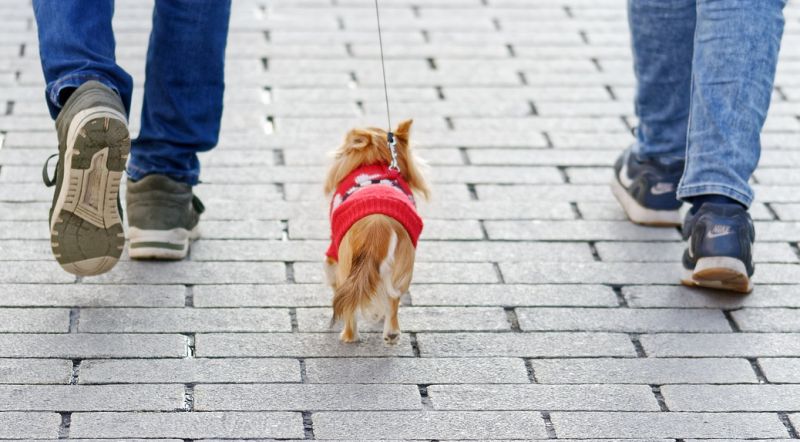
Not only do small dogs find it easier to navigate crowded sidewalks, elevators, hallways, and public transportation, but they also take up less space.
And because city life usually entails living in cramped confines, you’ll just find it easier to care for a pocket-sized pooch, rather than a giant.
Friendly Dispositions
Canine temperament varies from one individual to the next, but some breeds are typically friendlier than others.
Because you’ll often be surrounded by other people and their pets during your day-to-day life, you want to pick a dog who’s likely to make friends with everyone he meets.
Overly reactive, protective, predatory, or aloof breeds won’t enjoy city life as much.
Easy to Train
All dogs should receive basic obedience training, and this is especially important for dogs who must live in cities, where potential dangers abound. Accordingly, you’ll usually want to avoid breeds that are notoriously difficult to train.
It’s also important to note that house-training is considerably more difficult for those living in apartments rather than houses, so try to avoid dogs who frequently have trouble in this regard too.
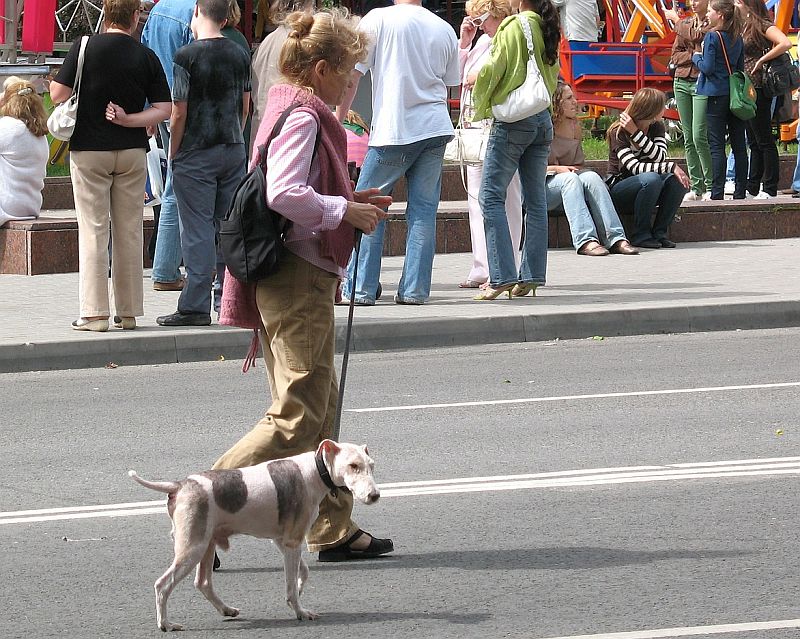
Good City Dogs Are Usually Quiet
Most dogs will bark on occasion, but some cause more of a racket than others.
So, try to pick a quiet breed not generally known for making noise, unless you want your neighbors complaining about your dog to the management.
Not Prone to Weight Gain
Some breeds are more likely to pack on the pounds than others. This can cause serious health problems, which you’ll need to address through a combination of proper diet and – most importantly – exercise.
Many modern cities have plenty of parks and other places you can let your dog burn some calories, but these places are undoubtedly easier to find in the suburbs than dense urban areas.
So, do yourself a favor and select a pooch that is less likely to become portly.
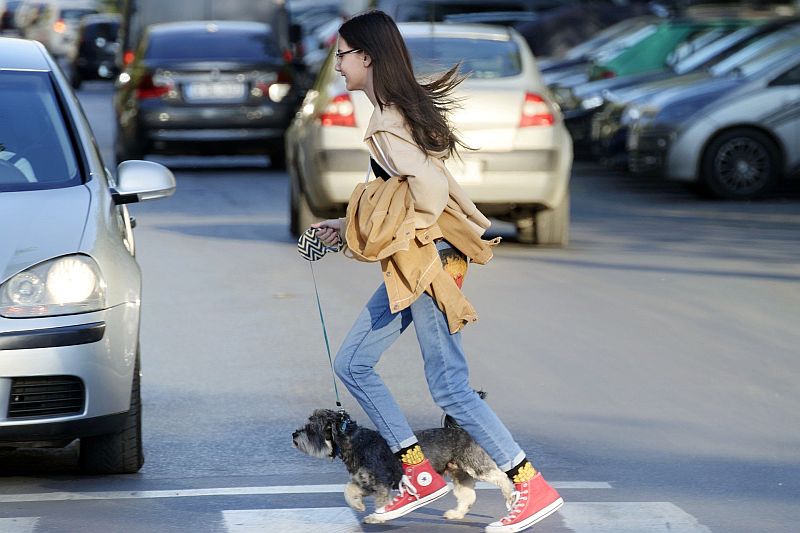
The 23 Best Dogs for City Living
A number of breeds can adapt well to city life, but we think the following 23 are some of the ones most likely to enjoy living in urban areas.
1. Bichon Frise
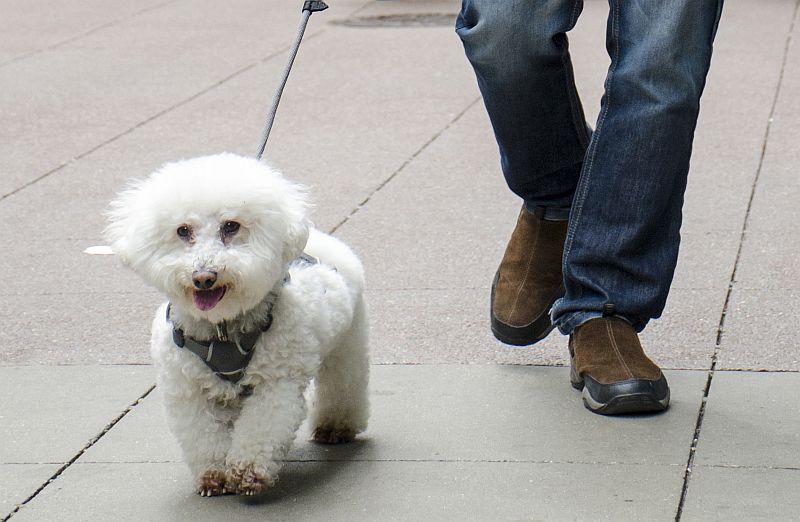
The bichon frise is a happy-go-lucky breed with a perpetually cheerful demeanor. They typically make fast friends with adults and kids, and they’re usually pretty friendly with other dogs too.
The bichon doesn’t shed very much and has a “hypoallergenic” coat, so it is a great breed for those with dog allergies. However, they require frequent grooming, so you’ll need to budget and plan accordingly.
Bichon frises are tiny little things, which helps make them great for apartment dwellers, but they can present house-training challenges.
2. Basenji
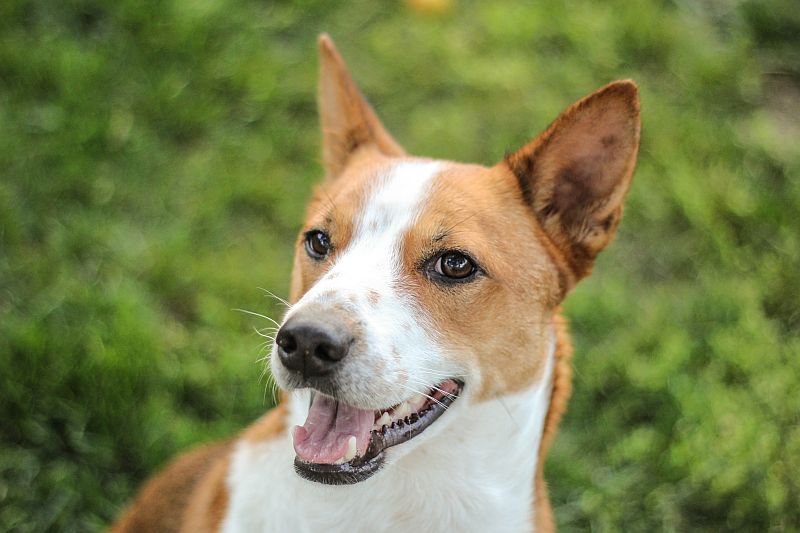
If you are interested in a dog that’s a little different than most of the others running around at the dog park, you may want to consider the basenji.
These canines hail from central Africa, where they were historically used as hunting dogs. They’re famous for not barking very much (if at all), but that doesn’t mean they’re silent. In fact, they emit a wide range of vocalizations, which are not only expressive but cute too.
Basenjis are pretty tidy pups, who don’t shed very much. They’re also pretty small (they reach about 20 to 25 pounds or so), so they “fit” in apartments and dense urban areas well.
However, it is vital that you understand these dogs before adding one to your family. They’re independent thinkers, which often cause training challenges. They also have insane prey drives, which can cause issues for those who have other small pets.
3. Boston Terrier
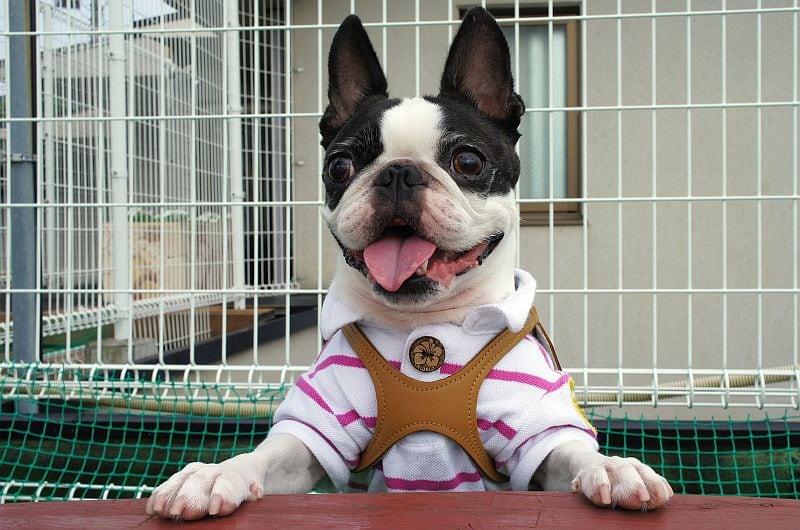
We’ll explain a few of the reasons Boston terriers are such great city dogs in a moment. But first, I’m gonna need you to just take a second and appreciate that face.
I mean, come on…
Also known as the “American gentleman,” the Boston terrier is a tidy and easy-to-groom chap, who doesn’t drool or shed very much. He may, however, be a bit gassy at times, so you’ll want to limit the people food and treats — stick to a good Boston terrier dog food instead.
These four-footers tend to be cheerful and friendly, and they often work very well for families with kids. They’re smart dogs too, but they can be stubborn during training.
The Boston terrier has more energy than may be considered ideal for city life, but daily walks will help tucker out his little legs and keep him calm.
4. Corgis
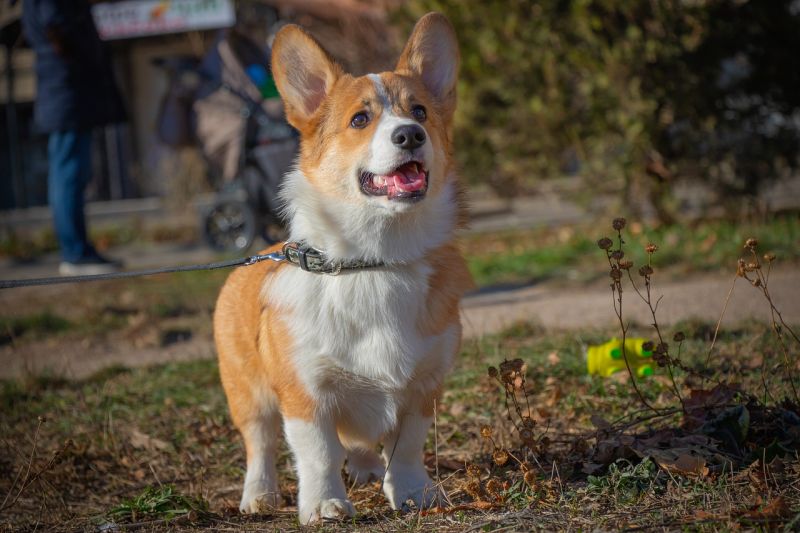
There are actually two different corgi breeds: Cardigan Welsh and Pembroke Welsh. Fortunately, both have friendly dispositions that make them well-suited for city life.
Corgis and Corgi mixes tend to view strangers as friends they’ve yet to meet, but they can be prickly with other dogs at times.
Corgis are pretty vocal dogs, so they may not be ideal for those living in quiet buildings. They also require a bit more exercise than some other dogs this size, so you’ll need to plan for lots of walks and park visits.
Note that corgis shed heavily, so they’re less than ideal for those with allergies.
5. Bulldog
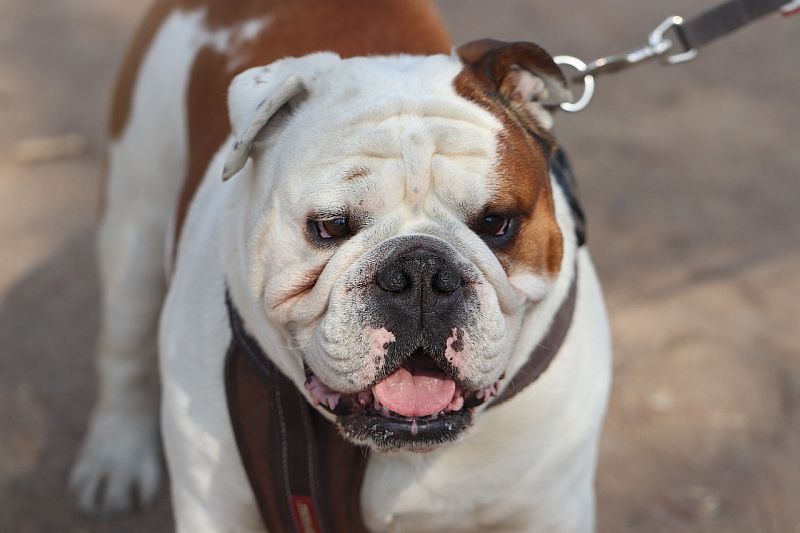
Formerly known as the English bulldog, these flat-faced four-footers are now simply known as bulldogs.
Unfortunately, those flat faces can cause a number of health issues, and bulldogs cannot tolerate high temperatures. They can also suffer from breathing issues, and many of them snore.
Nevertheless, bulldogs are a great choice for many city dwellers, as they have low energy requirements and don’t require very much exercise. In fact, they love just lounging around the house (preferably while devouring tasty treats).
Just be sure that you don’t overfeed your bulldog, as they view eating as a hobby and become obese very quickly.
6. Cavalier King Charles Spaniel
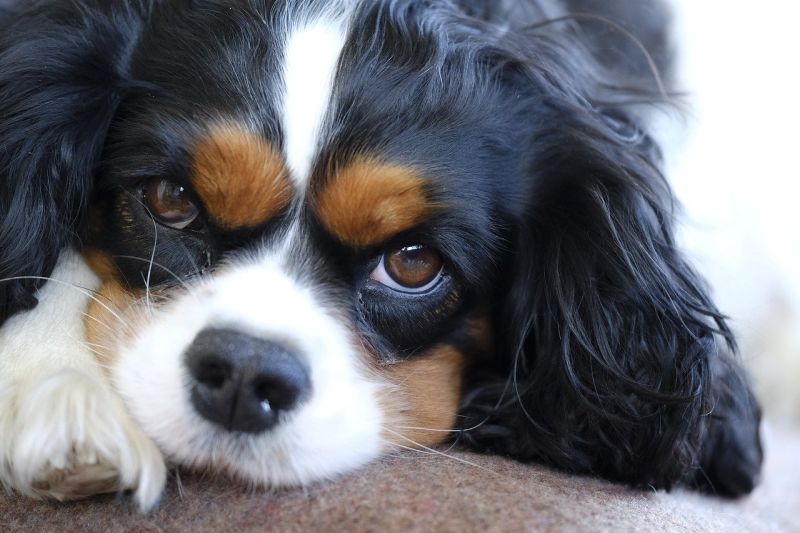
The cavalier King Charles spaniel was developed to be a companion breed and he is a great dog for owners who live in big cities. In fact, this breed is so easy-going that they make great dogs for first-time owners.
People pleasers at heart, these dogs are very sweet and affectionate.
They love nothing more than just curling up on their person’s lap and soliciting scritches. They also tend to get along with everybody, including kids, strangers, and other dogs.
The cavalier is quite intelligent and easy to train, and unlike some other small dogs, they rarely present house training difficulties. Just be sure that you don’t leave your cavalier alone very much, as they’re susceptible to separation anxiety.
7. Chihuahua
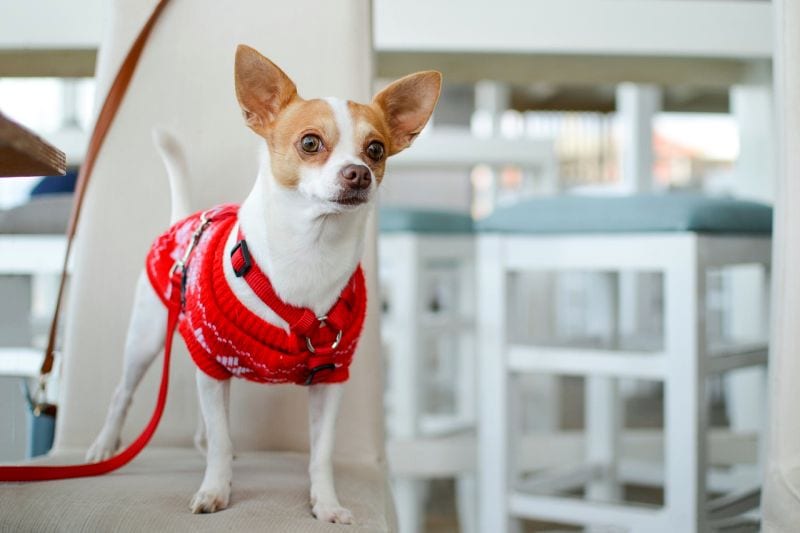
Chihuahuas are easily one of the best breeds for city dwellers. They’re pint-sized bodies are perfect for city life, and they’re a bit easier to house-train than many other toy breeds.
Chihuahuas are often friendly, but it is important to socialize them thoroughly while young to prevent them from becoming suspicious of strangers.
Chihuahuas and Chihuahua mixes are moderate shedders, but their tiny bodies can only hold so much hair anyway. So, excess hair probably shouldn’t be a deal-breaker for prospective owners.
The biggest problem Chihuahuas may present their city-dwelling owners is their tendency to bark a lot. They rarely hesitate to sound the alarm anytime someone walks by the front door or rings the buzzer.
8. Chinese Crested
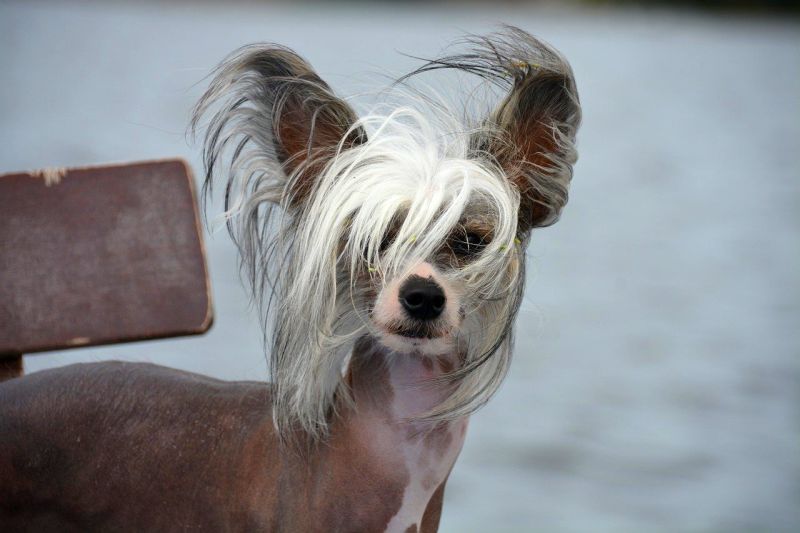
The Chinese crested dog isn’t everyone’s cup of tea, but plenty of owners find them positively adorable. Aesthetics aside, these sweet little cuties are really well suited for city life, and they should probably get more attention than they do.
Chinese crested dogs actually come in two different forms: “hairless” and Powderpuff. The former only have hair on their heads, tails, and paws, while the latter have a pretty typical coat.
Regardless of the coat type, these tiny little dogs can catch a chill very easily. So, you’ll want to have plenty of dog sweaters on hand for wintertime.
From a personality standpoint, these little cuties are friendly and tend to bond pretty strongly with their people. They’re also good with kids, so they’re often a great choice for city-dwelling families.
9. French Bulldog
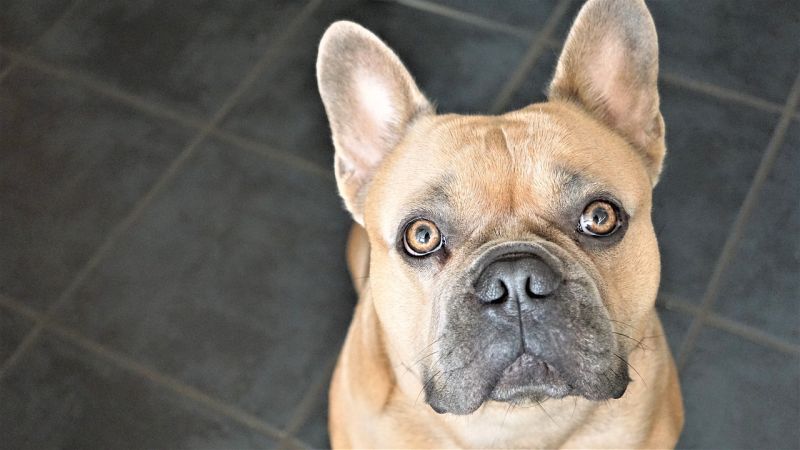
The adorable French bulldog is a wonderful apartment dog, who is very well suited for city living. They don’t require much exercise, and they’ll typically behave well during walks through crowded cities.
In addition to being friendly, smart, and charming, these little guys and gals are usually pretty quiet, making them ideal for those with noise-averse neighbors. Frenchies, as they are often called, are also great with kids, making them a good choice for families.
But French bulldogs do present a few issues. For starters, they fart, drool, and shed more than you’d think possible for such a tiny breed. They’re also kinda needy, and they will not tolerate being left alone for long periods.
10. Pug
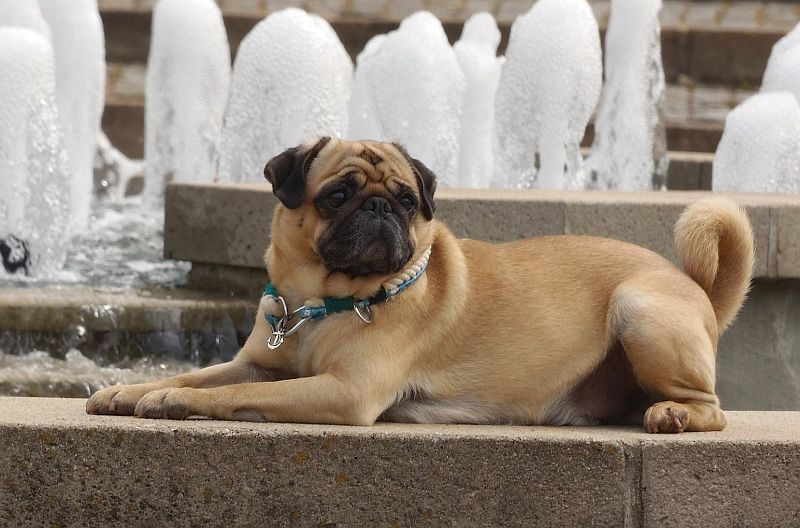
Pugs are the comedians of the canine world, and they often keep their owners in stitches with their adorable antics. Pugs like being the center of attention, and they make quick friends with four-footers and two-footers alike.
But above all else, the pug is a people-oriented lap dog. They typically become “second shadows” and never venture far from their human’s side. This can, however, lead to separation anxiety if they’re left alone, so these dogs are best-suited for homes in which someone is always around.
Pugs do shed heavily, so they’re not an ideal choice for allergy sufferers. They can also be very difficult to housetrain, so you’ll likely want to begin crate-training your little cutie as soon as you bring him home.
Also, note that pugs are eager eaters, who are susceptible to obesity. So, be sure to pick a food designed for toy breeds and go easy on the treats and people food.
11. Shih Tzu
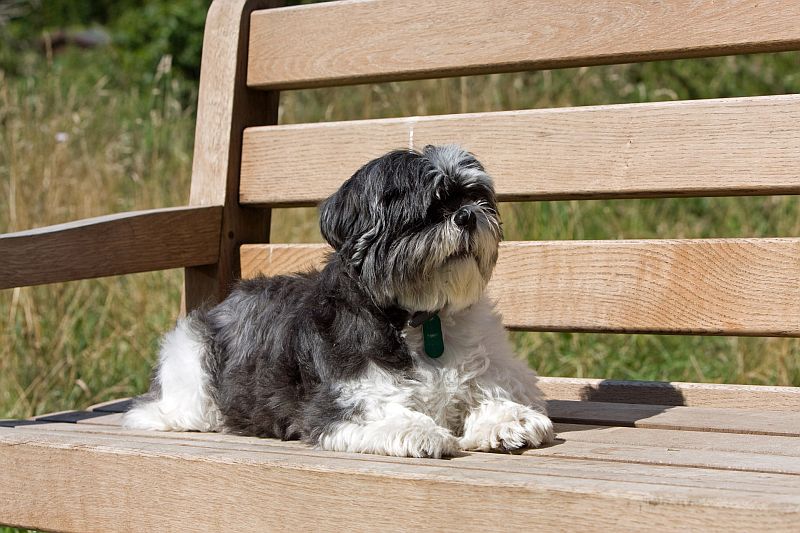
Shih tzus are one of the world’s most endearing dog breeds. They have a wonderful combination of confidence and charm, which makes them nearly irresistible.
Originally developed to accompany royal families, these noble little pups sometimes bear a flowing, silky coat that stretches to the floor. However, many owners keep their shih tzu’s coat pretty short to make upkeep easier.
Shih tzus and shih tzu mixes typically make friends with people and other doggos, but they have a surprisingly high prey drive for a toy breed. They tend to bond strongly with their families, but they are actually better able to handle some alone time than many other lap dogs.
As with many other small breeds, shih tzus can be difficult to house train. They’re also sensitive to high temperatures, given their short little snoots.
12. Maltese
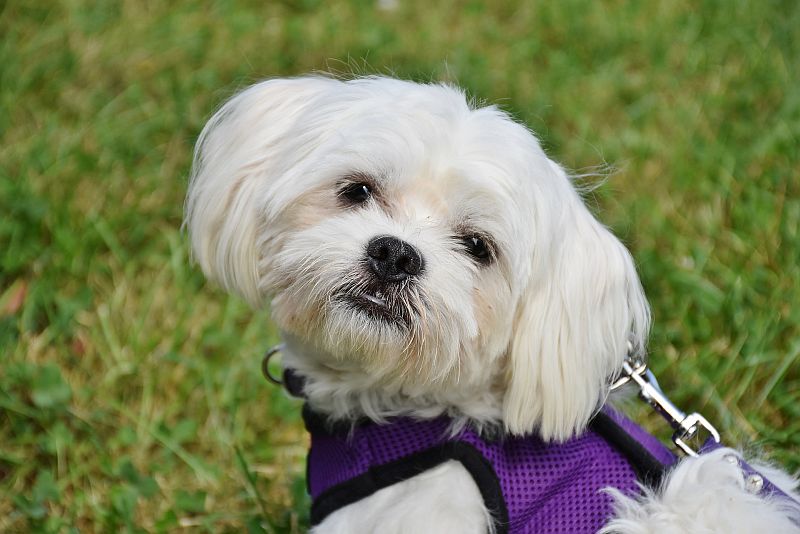
Despite hailing from Europe, rather than China, the Maltese is similar to the shih tzu in many ways. Like the shih tzu, the Maltese is outgoing, friendly, and surprisingly bold for his size. Additionally, both breeds sometimes bear very long, flowing coats.
Malteses are people pleasers, who’re smart and pretty easy to train.
However, as is common for toy breeds, they can be tricky to house train. They are also susceptible to separation anxiety, so consider your lifestyle before adding one of these four-footers to your family.
Malteses don’t drool or shed very much, so they’re not a bad choice for people who like to keep a tidy home.
13. Greyhound

Because of their ability to run at warp speed, greyhounds may not seem like an ideal choice for the cramped living conditions city life often imposes. However, while they do need exercise and the chance to run, they are actually a pretty chill and calm dog breed, and they generally love lounging on the couch.
Greyhounds are very friendly, sensitive dogs, who often get along fantastically with kids. But they do have pretty serious prey drives, so you’ll want to keep them securely leashed when walking through squirrel territory.
A lot of people like the idea of adopting greyhounds who are retired racers, but this can sometimes be challenging, as many have a history of mistreatment.
14. Havanese

If you’re looking for a dog that’ll follow you around all day and night, the Havanese may be the breed for you. Friendly and affectionate, these little cuties often love living in the city and getting the chance to meet new people everyday.
The Havanese is also a smart cookie, who is easy to train. However, like many other toy breeds, they can be very challenging to house train. This presents an especially icky issue for these dogs, as they occasionally suffer from coprophagia — the tendency to eat feces.
Havaneses have higher energy levels than most other small pups, so you will need to take him for long and frequent walks. It’s also a good idea to visit the local dog park a few times a week, so he can run, jump, and play until he tuckers himself out.
15. Yorkshire Terrier
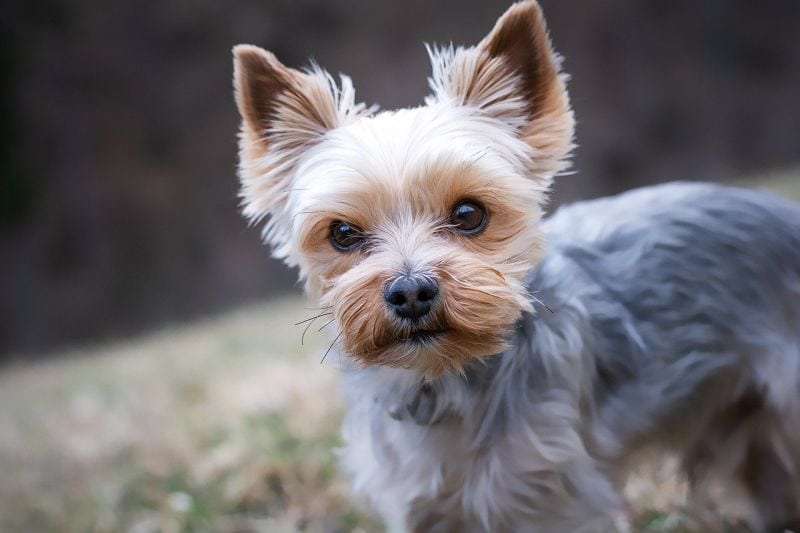
Yorkshire terriers may look like quintessential lap dogs. But these furballs are actually pretty spunky, thanks to their terrier ancestry, which gives them plenty of pluck and confidence.
All Yorkies are small, but they vary in size quite a bit. One little pooch may never exceed 5 pounds in weight, while one of his siblings may reach two or three times that size. Because they’re so tiny, Yorkies can become chilled very easily, so you’ll want to bundle up your little buddy for winter walks.
Yorkies and Yorkie mixes can be maddeningly difficult to house train, and they have very sensitive stomachs, so refrain from sharing your food with your pooch.
16. Whippet
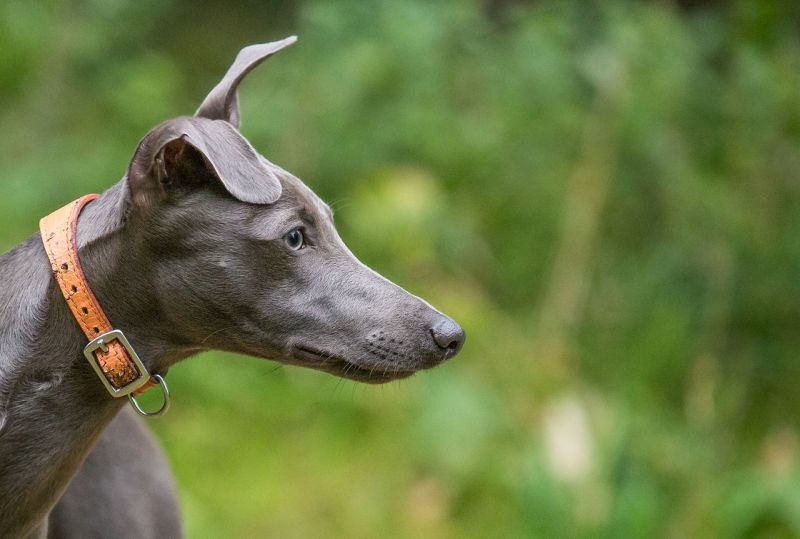
Thought to be the result of breeding greyhounds, Italian greyhounds, and terriers, the whippet is sometimes called “the poor man’s greyhound.” But these lovable pups are fantastic in their own right, and they make great pets for city-dwellers.
Like greyhounds, whippets can run at light speed, but they too are sprinters, rather than endurance runners like huskies or some other breeds. So, while you’ll need to allow your whippet to run around regularly, they’ll usually collapse on the couch for hours afterward.
Whippets tend to get along well with children, but they aren’t a great option for homes with cats — their prey drives are simply too strong. You’ll also need to keep this in mind when walking your whippet and be sure to keep him securely leashed at all times.
17. Pomeranian
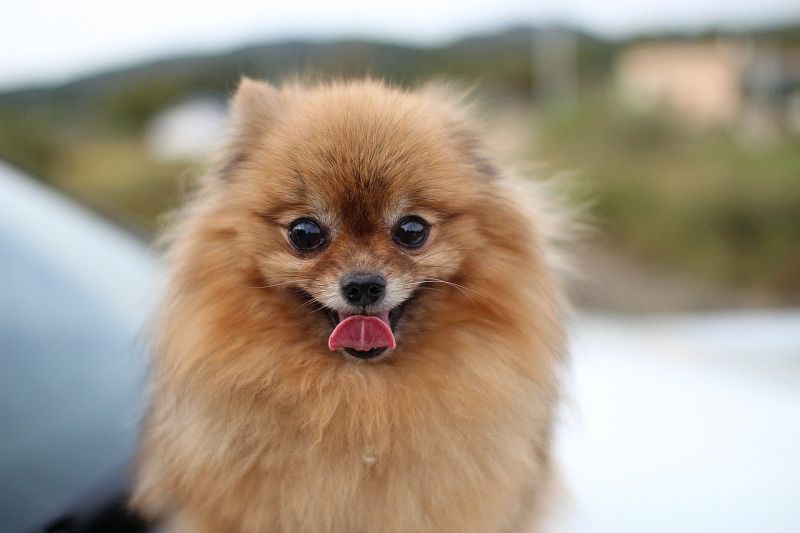
Pomeranians are great dogs for owners living in the city, but before we explain why, just take a moment and enjoy that adorable (and slightly ridiculous) face. These little canines are simply too cute for words.
Pomeranians are positively tiny dogs, who rarely weigh more than 7 pounds. But while the Pomeranian is a pint-sized pup, he has a wolf-sized personality. In fact, this can get him into trouble at times, as he may instigate conflicts with larger dogs.
Like most other tiny breeds, Pomeranians can be a nightmare to house train. But, they’re very smart dogs, who pick up tricks and commands quickly. In fact, they’re actually quite skilled at agility and obedience work.
18. Dachshunds
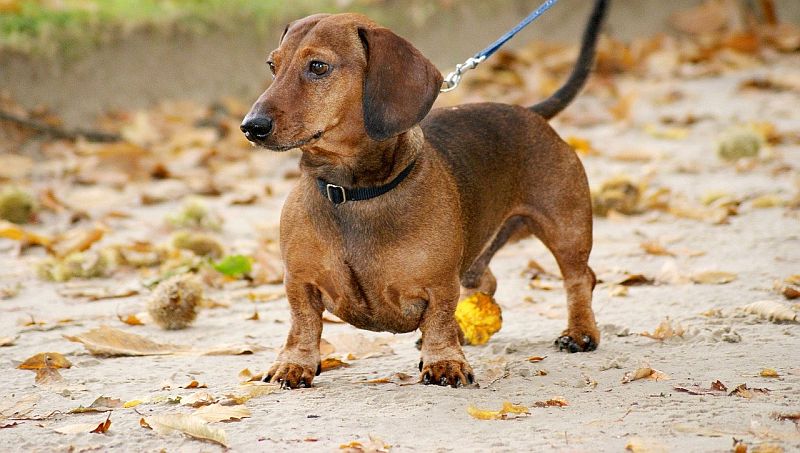
The dachshund or wiener dog is a delightful little companion who is well-suited for city livin’. Small but spunky, these dogs were initially developed to dispatch a variety of vermin. And this even included relatively formidable critters like badgers (“dachshund” means badger dog).
Dachshunds are smart dogs, but this can actually cause trouble if they’re not sufficiently stimulated — they need lots of attention, toys, and playtime to prevent them from becoming destructive.
Dachshunds are unfortunately susceptible to a variety of ailments, including intervertebral disc disease and epilepsy. So, be sure that you obtain your new puppy from a reputable breeder.
While dachshunds are pretty good canines for city life, they are very vocal. Additionally, they’re often difficult to house train. In fact, some owners find it necessary to fit male dachshunds with belly bands to prevent them from peeing all over the place.
19. Labrador Retriever
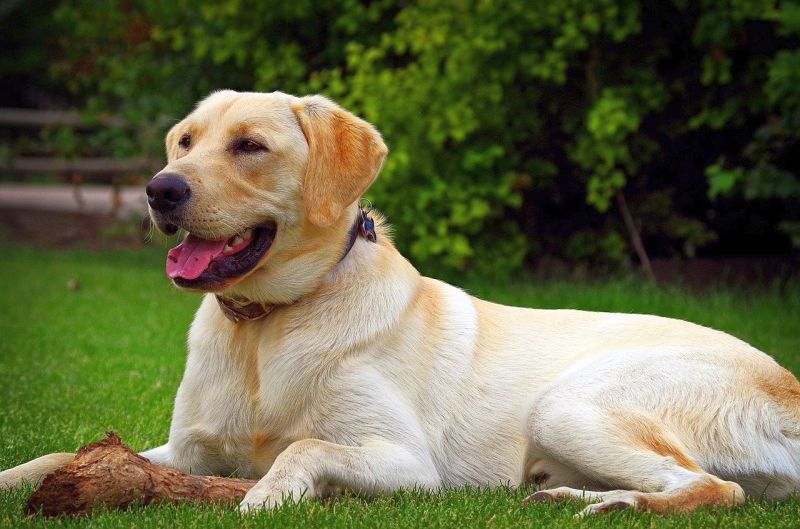
Labs are certainly larger than most of the other breeds that are well-suited for city life, but they still deserve consideration — especially if you are fortunate enough to have a yard or live close to a park.
The Lab’s happy-go-lucky, ridiculously friendly demeanor is part of the reason they can adapt well to city living. Some dogs can’t handle being surrounded by people and other pets all the time, but Labs will usually see that as a good thing!
Additionally, Labs are usually very smart and easy to train, which will also help them in these situations.
But that doesn’t mean they’re always suitable for city life. You’ll need to be prepared to get these high-energy dogs plenty of exercise, as they will go positively batty if cooped up indoors for long periods of time.
They are also prone to separation anxiety, so they’re probably not an ideal choice for those who’re away at work or school all day long.
20. Golden Retriever
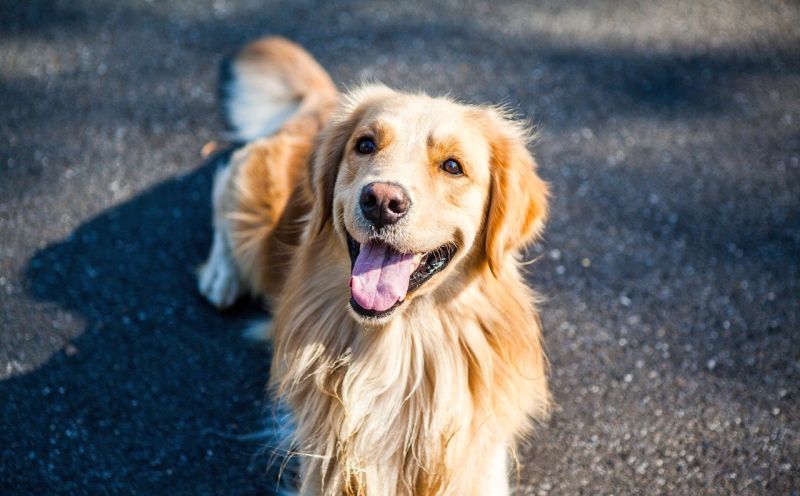
Honestly, there aren’t many situations in which golden retrievers won’t thrive — including living in crowded urban areas. That’s part of the reason they’re one of the most popular breeds in the U.S.
Goldens make friends with just about everyone they meet, and they’re sharp as tacks, which makes training a breeze. And while they may bark at delivery drivers or garbage trucks, they’re usually not very yappy.
But, like their Labrador relatives, golden retrievers are pretty big, so they’re not ideal for matchbox-sized apartments. They also need plenty of exercise, so you’ll be visiting the park on a daily basis.
You’ll also need to be willing to deal with their tendency to shed more hair than you’d think possible. This could be an issue for those with allergies and owners who aren’t willing to vacuum several times a week.
21. Schnauzer
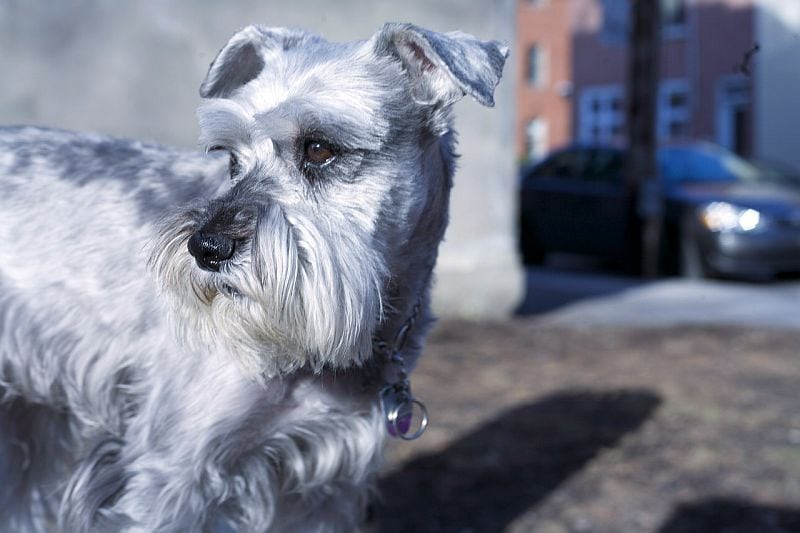
The schnauzer is a handsome dog with a dignified demeanor. Smart and tidy, they will fit in well with most city-situated families, although they aren’t ideal for multi-pet households.
Schnauzers are typically pretty easy to train, but they can be stubborn, which can make them challenging for first-time owners. They don’t respond well to harsh training methods, so be sure to employ only positive training techniques once you bring yours home.
One potential issue for schnauzer and schnauzer mixes in the city is their energy level — these dogs have surprising amounts of energy and require plenty of time at the park.
22. Poodle
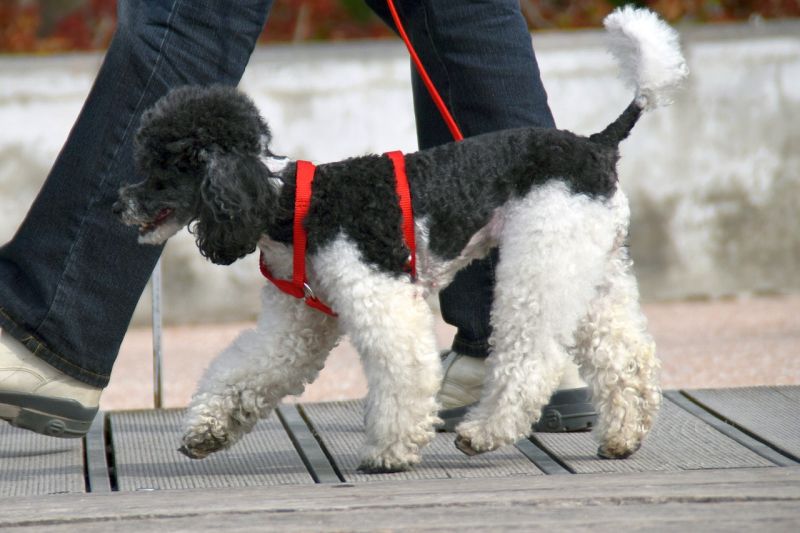
The AKC currently considers the poodle to be the 7th most popular breed in America, but given their considerable awesomeness, they should probably rank even higher.
Poodles come in several sizes, are sweet, and generally easy-going. They’re also remarkably intelligent dogs, who’re often easy to train. They do require a fair bit of exercise, but this is easy to provide if you have access to a good swimming hole — these puppers are first-rate dog paddlers.
But one of the biggest selling points of poodles is their “hypoallergenic” coat, which sheds relatively little. This makes them the ideal choice for allergy sufferers and neat freaks alike.
23. Great Dane
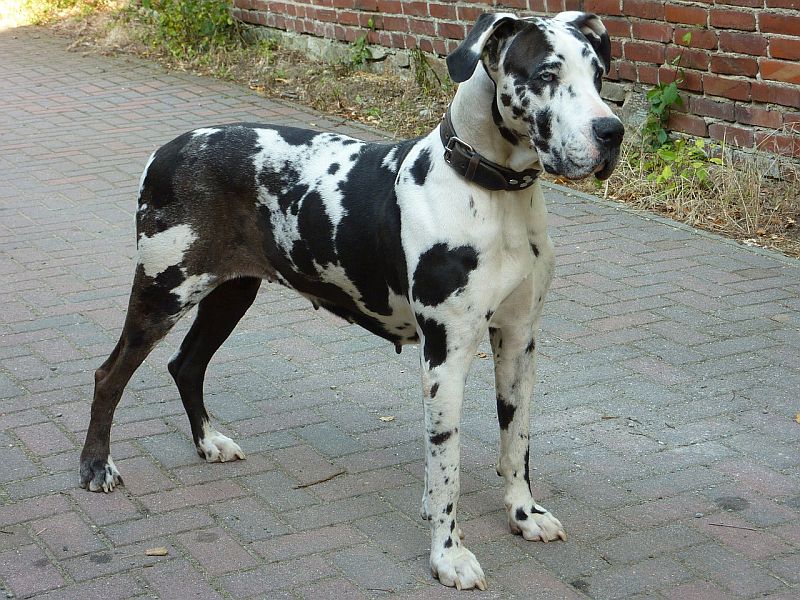
OK, obviously, the Great Dane presents some size issues for city dwellers.
These are one of the biggest dogs in the world, and 200-pound individuals aren’t unheard of. But they often make surprisingly good city dogs.
For starters, while Great Danes certainly need to stretch their legs a bit every day, they’re often couch potatoes, who simply want to snuggle with you all day. And while they can be a bit more reserved than say, golden retrievers, they’re usually pretty friendly chaps too.
Great Danes aren’t particularly heavy shedders, which is also nice for those living in cramped confines, but they are Olympic-caliber droolers.
***
I’m not really a city creature – I prefer to be surrounded by trees and critters, rather than concrete and steel. But in my younger days, I did live in a relatively dense part of Midtown Atlanta.
My four-footed sidekick at the time – a sugary-sweet chocolate Lab – handled city life perfectly well, and she never presented a problem in that regard.
Neither the crowded sidewalks nor the chaos ever seemed to bother her, and she liked getting the chance to meet passersby on a daily basis. She also loved hanging out at some of the local pooch-friendly pubs in the area and soliciting tasty morsels from strangers.
But the idea of taking my current dog into a crowded urban area makes my palms sweat. She is much better suited for a life spent exploring parks and other natural areas, where she doesn’t feel as bombarded by other people and their pets.
Point being, some dogs will thrive very well in cities, but others won’t. Just be sure to think carefully when picking a dog for city life to ensure the best outcome for all parties.
Have you ever had a dog that was particularly well-suited for city life? What breeds did we forget to include? Let us know in the comments below!
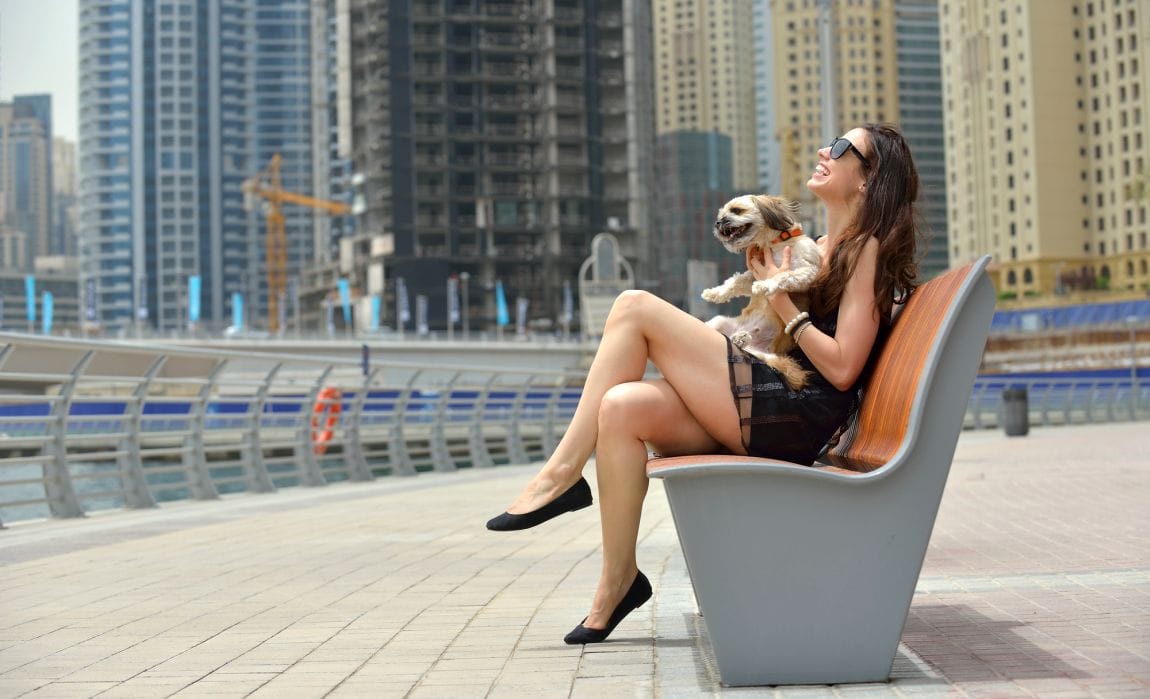

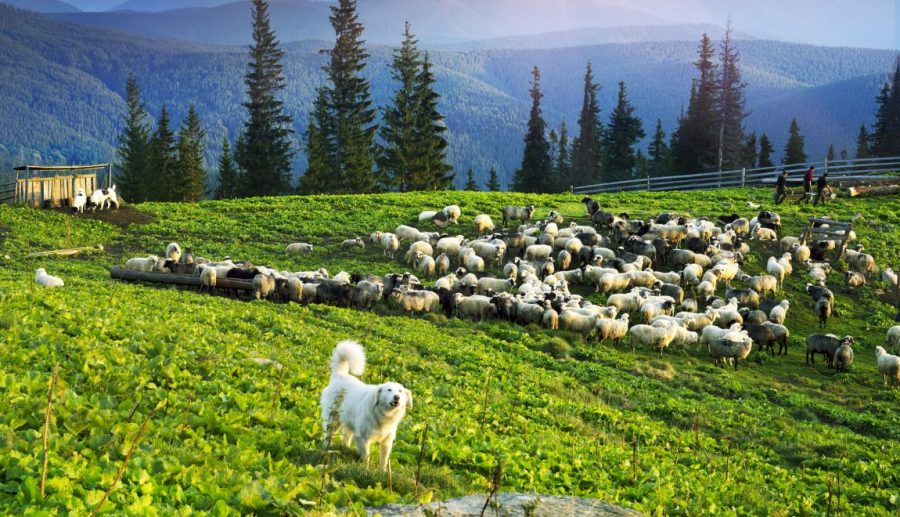


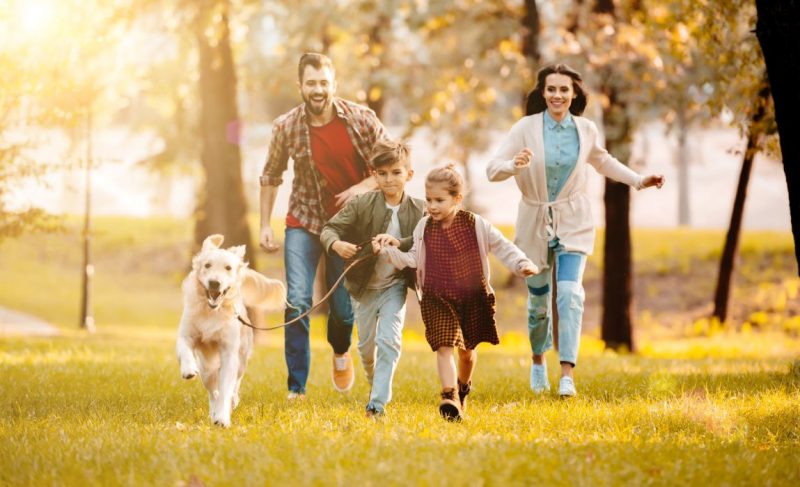
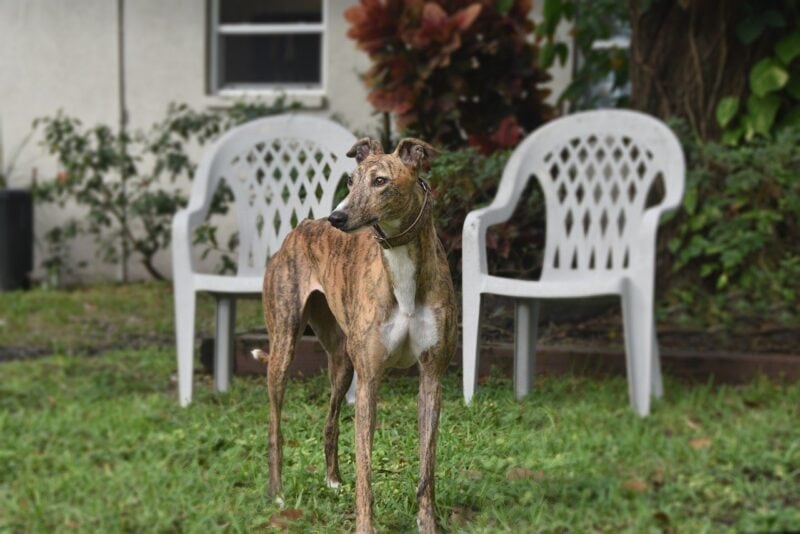

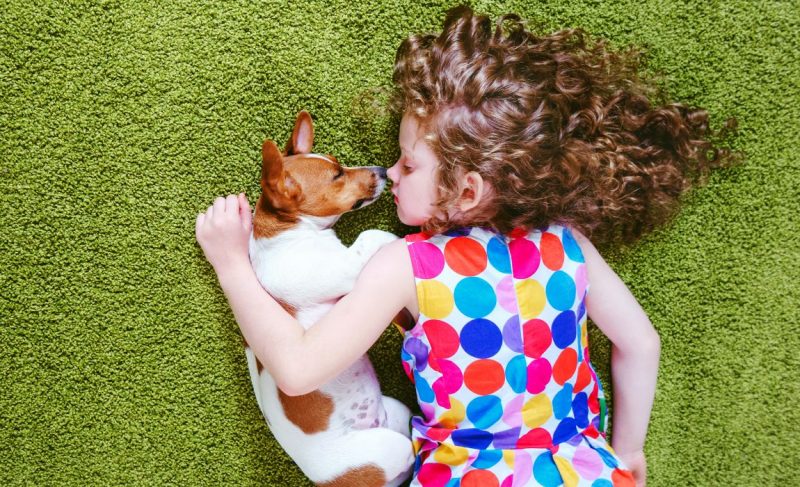
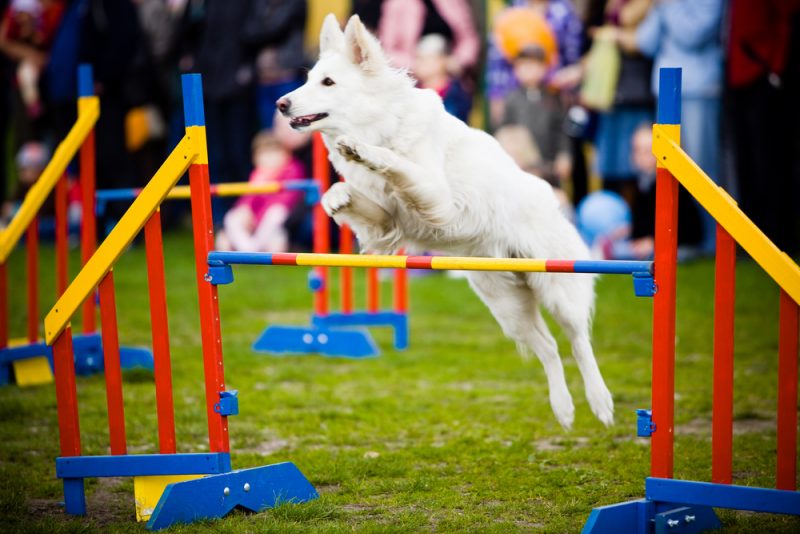
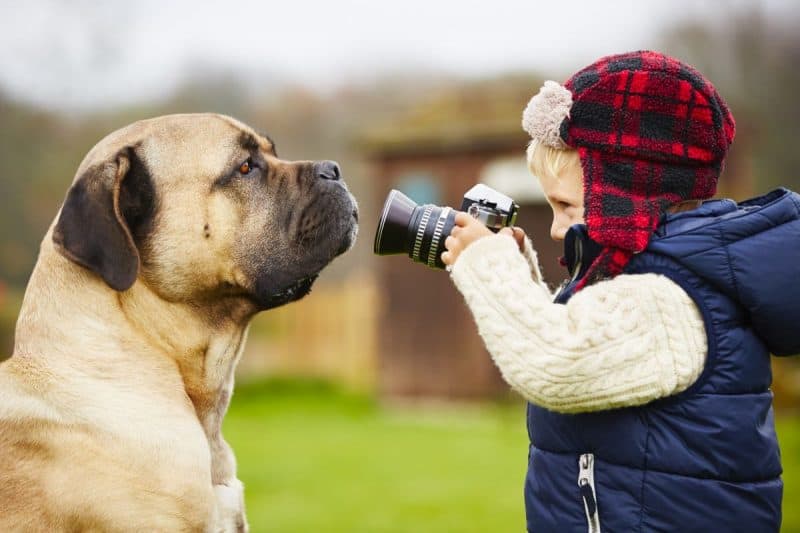


Leave a Comment